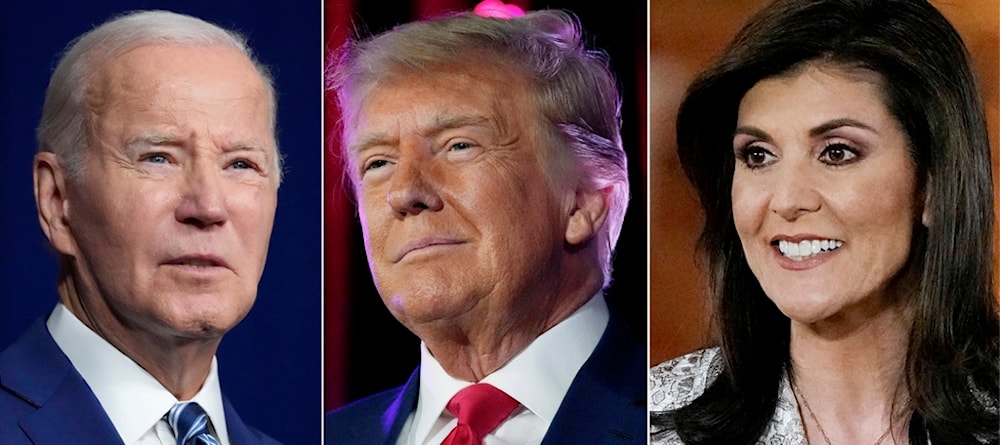Super Tuesday: High-stakes nominating contests across US
Trump and Biden currently lead their respective parties' nomination races, with Trump dominating most contests except for a recent setback in the Washington, DC primary.
-

In this combination of photos, President Joe Biden speaks on Aug. 10, 2023, in Salt Lake City, left, and former President Donald Trump speaks on July 8, 2023, in Las Vegas, center, and Republican presidential candidate former UN Ambassador Nikki Haley, speaks on February 18, 2024, in Columbia, South Carolina (AP)
On Super Tuesday, over 15 states, including Alabama, California, Colorado, Maine, Massachusetts, Texas, and Virginia, are gearing up for Republican primary elections and Democratic nominating contests.
Caucuses will further take place in Alaska and Utah for Republicans and in American Samoa for Democrats.
Former President Donald Trump and former Ambassador to the UN Nikki Haley are among the contenders seeking over 850 Republican delegates.
Meanwhile, President Joe Biden aims to secure his Democratic nomination by competing for more than 1,400 delegates.
Trump and Biden currently lead their respective parties' nomination races, with Trump dominating most contests except for a recent setback in the Washington, DC primary.
Read more: Nikki Haley wins first Republican primary in DC ahead of Super Tuesday
Earlier in the day, the US Supreme Court announced it overturned a Colorado Supreme Court decision that attempted to remove Trump from primary election ballots in the state, just ahead of Super Tuesday.
During arguments in the case, Supreme Court justices expressed sympathy for Trump's appeal of a December 19 verdict by Colorado's highest court.
After the US Supreme Court's decision overturning the ruling in Colorado, Trump described the outcome as a "big win" for the United States.
Trump on Saturday swept to victory in the Republican caucuses in Michigan, a contested state for the party that some Republicans fear could hurt his campaign in the key battleground state as he gears up for the election in November.
The former US President also won the latest Republican presidential nomination vote on Saturday, defeating competitor Nikki Haley in Missouri.
Both parties are eyeing their national conventions, with Republicans set for July 15-18 in Milwaukee, Wisconsin, and Democrats scheduled for August 19-22 in Chicago, Illinois. The nominees from each party will then face off in the general election on November 5.
Read more: Trump's approval surges to highest level since 2022
This year's elections likely mark the most heated the country has ever witnessed, due to considerations from certain states, namely Texas, to split away from the federation.
While Republicans have pointed fingers at Biden for his handling of the migrant crisis, Biden has attempted to deflect these criticisms by attributing the lack of progress to Congress's failure to support his proposed reforms.
Trump, on the other hand, maintains his staunch anti-immigration stance, which has long been a cornerstone of his political persona, and he has consistently pledged to tighten measures against border crossings from Mexico in his pursuit of a White House comeback.
Other issues have arisen due to Biden's pro-Israeli stance. In light of the ongoing genocide in Gaza, his policy has led to voters in Michigan voting "uncommitted."

 3 Min Read
3 Min Read








